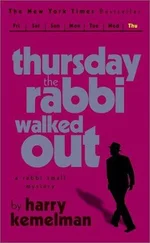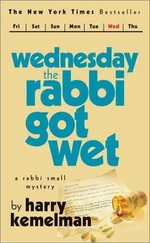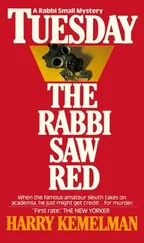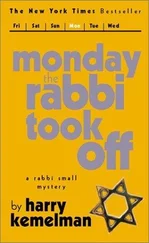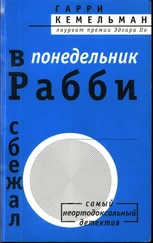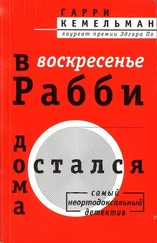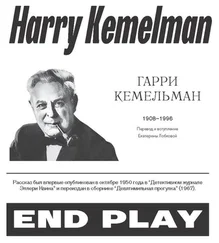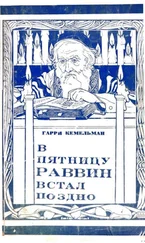“Well, I won’t press the point,” I said brusquely.
“Then try this one: He was walking toward a town rather than away from one.”
I nodded. “It is more likely, I suppose. If he were in a town, he could probably arrange for some sort of transportation. Is that the basis for your inference?”
“Partly that,” said Nicky, “but there is also an inference to be drawn from the distance. Remember, it’s a nine-mile walk and nine is one of the exact numbers.”
“I’m afraid I don’t understand.”
That exasperated schoolteacher look appeared on Nicky’s face again. “Suppose you say, ‘I took a ten-mile walk’ or ‘a hundred-mile drive’; I would assume that you actually walked anywhere from eight to a dozen miles, or that you rode between ninety and a hundred and ten miles. In other words, ten and hundred are round numbers. You might have walked exactly ten miles, or just as likely you might have walked approximately ten miles. But when you speak of walking nine miles, I have a right to assume that you have named an exact figure. Now, we are far more likely to know the distance of the city from a given point than we are to know the distance of a given point from the city. That is, ask anyone in the city how far out Farmer Brown lives, and if he knows him, he will say, ‘Three or four miles.’ But ask Farmer Brown how far he lives from the city and he will tell you, ‘Three and six-tenths miles — measured it on my speedometer many a time.’”
“It’s weak, Nicky,” I said.
“But in conjunction with your own suggestion that he could have arranged transportation if he had been in a city —”
“Yes, that would do it,” I said. “I’ll pass it. Any more?”
“I’ve just begun to hit my stride,” he boasted. “My next inference is that he was going to a definite destination and that he had to be there at a particular time. It was not a case of going off to get help because his car broke down or his wife was going to have a baby or somebody was trying to break into his house.”
“Oh, come now,” I said, “the car breaking down is really the most likely situation. He could have known the exact distance from having checked the mileage just as he was leaving town.”
Nicky shook his head. “Rather than walk nine miles in the rain, he would have curled up on the backseat and gone to sleep, or at least stayed by his car and tried to flag another motorist. Remember, it’s nine miles. What would be the least it would take him to hike it?”
“Four hours,” I offered.
He nodded. “Certainly no less, considering the rain. We’ve agreed that it happened very late at night or very early in the morning. Suppose he had his breakdown at one o’clock in the morning. It would be five o’clock before he would arrive. That’s daybreak. You begin to see a lot of cars on the road. The buses start just a little later. In fact, the first buses hit Fairfield around five-thirty. Besides, if he were going for help, he would not have to go all the way to town — only as far as the nearest telephone. No, he had a definite appointment, and it was in a town, and it was for some time before five-thirty.”
“Then why couldn’t he have got there earlier and waited?” I asked. “He could have taken the last bus, arrived around one o’clock, and waited until his appointment. He walks nine miles in the rain instead, and you said he was no athlete.”
We had arrived at the Municipal Building, where my office is. Normally any arguments begun at the Blue Moon ended at the entrance to the Municipal Building. But I was interested in Nicky’s demonstration, and I suggested that he come up for a few minutes.
When we were seated I said, “How about it, Nicky, why couldn’t he have arrived early and waited?”
“He could have,” Nicky retorted. “But since he did not, we must assume that he was either detained until after the last bus left, or that he had to wait where he was for a signal of some sort, perhaps a telephone call.”
“Then, according to you, he had an appointment sometime between midnight and five-thirty —”
“We can draw it much finer than that. Remember, it takes him four hours to walk the distance. The last bus stops at twelve-thirty A.M. If he doesn’t take that, but starts at the same time, he won’t arrive at his destination until four-thirty. On the other hand, if he takes the first bus in the morning, he will arrive around five-thirty. That would mean that his appointment was for sometime between four-thirty and five-thirty.”
“You mean that if his appointment were earlier than four-thirty, he would have taken the last night bus, and if it were later than five-thirty, he would have taken the first morning bus?”
“Precisely. And another thing: If he were waiting for a signal or a phone call, it must have come not much later than one o’clock.”
“Yes, I see that,” I said. “If his appointment is around five o’clock and it takes him four hours to walk the distance, he’d have to start around one.”
He nodded, silent and thoughtful. For some queer reason I could not explain, I did not feel like interrupting his thoughts. On the wall was a large map of the county and I walked over to it and began to study it. “You’re right, Nicky,” I remarked over my shoulder, “there’s no place as far as nine miles away from Fairfield that doesn’t hit another town first. Fairfield is right in the middle of a bunch of smaller towns.”
He joined me at the map. “It doesn’t have to be Fairfield, you know,” he said quietly. “It was probably one of the outlying towns he had to reach. Try Hadley.”
“Why Hadley? What would anyone want in Hadley at five o’clock in the morning?”
“The Washington Flyer stops there to take on water about that time,” he said quietly.
“That’s right, too,” I said. “I’ve heard that train many a night when I couldn’t sleep. I’d hear it pulling in and then a minute or two later I’d hear the clock on the Methodist church banging out five.” I went back to my desk for a timetable. “The Flyer leaves Washington at twelve forty-seven A.M. and gets into Boston at eight A.M.”
Nicky was still at the map measuring distances with a pencil. “Exactly nine miles from Hadley is the Old Sumter Inn,” he announced.
“Old Sumter Inn,” I echoed. “But that upsets the whole theory. You can arrange for transportation there as easily as you can in a town.”
He shook his head. “The cars are kept in an enclosure and you have to get an attendant to check you through the gate. The attendant would remember anyone taking out his car at a strange hour. It’s a pretty conservative place. He could have waited in his room until he got a call from Washington about someone on the Flyer — maybe the number of the car and the berth. Then he could just slip out of the hotel and walk to Hadley.”
I stared at him, hypnotized.
“It wouldn’t be difficult to slip aboard while the train was taking on water, and then if he knew the car number and the berth —”
“Nicky,” I said portentously, “as the reform district attorney who campaigned on an economy program, I am going to waste the taxpayers’ money and call Boston long distance. It’s ridiculous; it’s insane — but I’m going to do it!”
His little blue eyes glittered and he moistened his lips with the tip of his tongue. “Go ahead,” he said hoarsely.
• • •
I replaced the telephone in its cradle. “Nicky,” I said, “this is probably the most remarkable coincidence in the history of criminal investigation: A man was found murdered in his berth on last night’s twelve forty-seven from Washington! He’d been dead about three hours, which would make it exactly right for Hadley.”
Читать дальше

